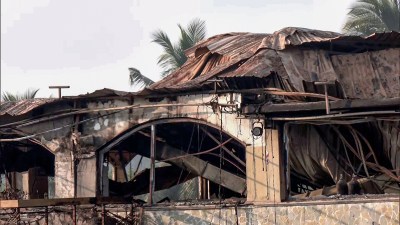In deep waters
If you are looking for a challenging and demanding profession, one that includes the possibility of life and death situations, then consider...

If you are looking for a challenging and demanding profession, one that includes the possibility of life and death situations, then consider commercial deep sea diving.
8220;One works in an environment that is always against you,8221; says Pradip D8217;Lima who has done 13 years of deep sea diving. He was involved in commercial oil field diving that included under-water inspection, maintenance, repair and other sub-sea construction activities. Presently, he is working as a project manager with Rockwater, a part of the Brown amp; Root/ Halliburton group of companies.
Adds Pradip, 8220;Most of the work is done in zero visibility. If, in spite of severe safety standards followed today, your life support systems packs up, you could land yourself in a life-and-death situation. The closest I came to an accident was when doing some underwater oxy-arc cutting of a steel pipe that had a gas build-up in it. The gas ignited and there was an explosion. I thought the face plate on my diving helmet had gone, but it was there8221;!
As regards the qualifications, a prospective deep sea diver must have cleared the standard XII examination, preferably in the science stream. Says Pradip, 8220;One has to be a fairly good swimmer, though the job does not entail just swimming. One has to be physically strong with above average stamina. There are stringent prerequisite medical tests that include an oxygen breathing tolerance test.
8220;One has also to be mentally very strong. If one keeps in good health and remains physically fit, you can continue to be a diver till you are about 50 years old8221;.
As for the different kinds of diving, Pradip explains that scuba diving is generally recreational, though scuba divers can do research work in shallow waters, down to a depth of about 20-30 metres. There8217;s also air diving which is usually carried out from the surface to a depth of 40-50 metres and is done for commercial purposes. Pradip has also carried out deep-sea saturation diving and extended duration sub-sea work.
8220;Air diving is limited to a depth of approximately 50 metres, one has to be careful not to go deeper,8221; Pradip explains, 8220;As one goes deeper, the nitrogen changes its state from gas to liquid, gets into the blood and gives one a drunken feeling called nitrogen narcosis8217;, which affects the person8217;s mental capacities. When one begins to come up again, the pressure on the body decreases, and the nitrogen returns to its gaseous state. This causes the dreaded bends8217; 8211; nitrogen bubbles in your blood stream that can lodge themselves in the brain or in areas where one bends one8217;s joints8221;.
Would he recommend deep sea diving as a career? 8220;Yes,8221; he says, 8220;if you can stand the risks, it8217;s very exciting. And the job scene in India is good. There are at least six reputed companies which sub-contract divers. Overseas opportunities like most other jobs come with the added international competition. One has to be really good and also prove oneself once one gets the job8221;.
- 01
- 02
- 03
- 04
- 05































